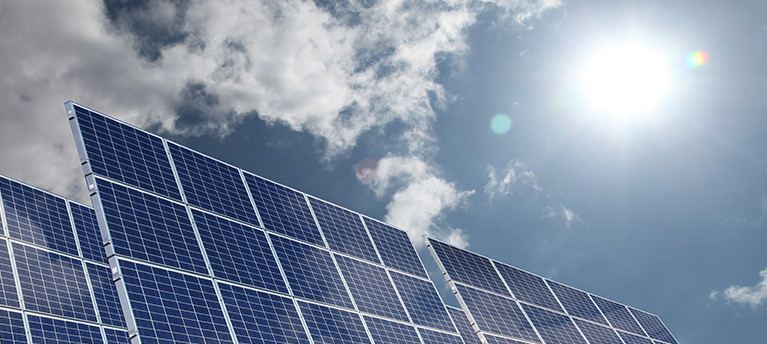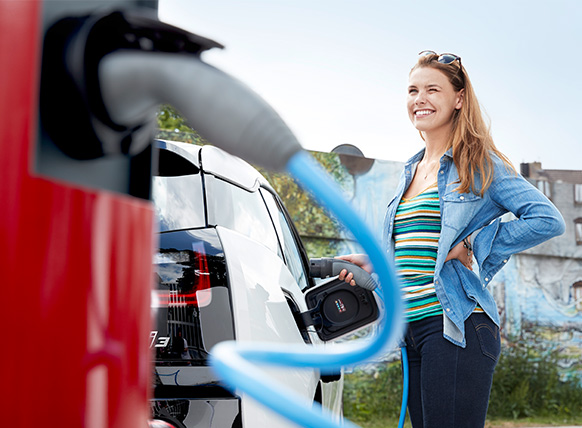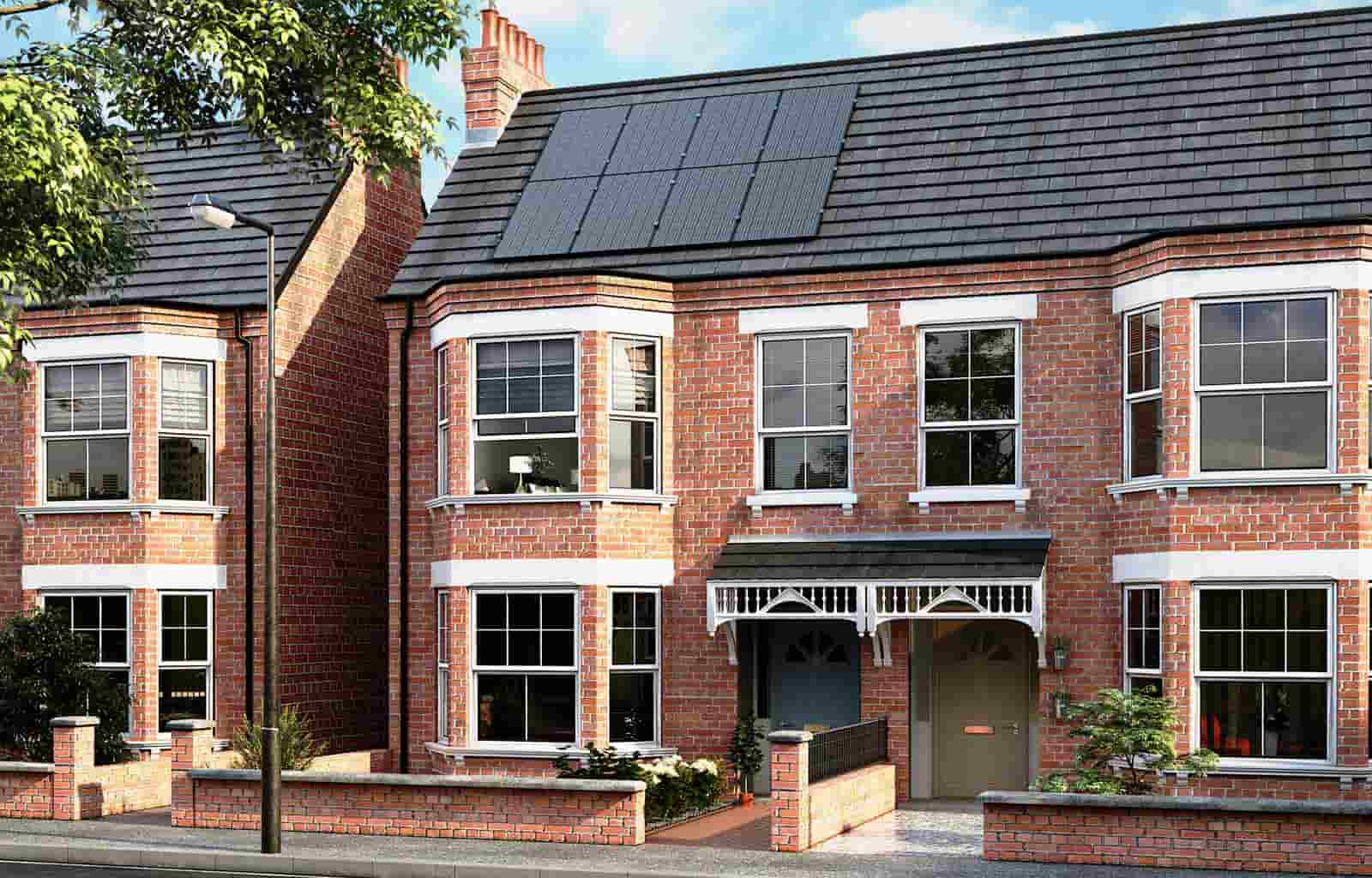

The future of solar is bright
Solar power is not new, but its future is very bright. Ideas of harnessing the energy of the sun and the know-how behind solar cell technology have been with us for centuries1. Today though, solar is experiencing a spectacular rise in popularity worldwide and is currently the fastest growing energy source in Europe2.
So, with solar panels becoming an increasingly common sight on roofs everywhere, what do homeowners need to know?


Good for the planet
In terms of how solar panels actually work, they are made up of photovoltaic (PV) cells which consist of semiconductor materials to convert daylight into electricity. When a solar PV panel is exposed to the rays of the sun, in natural daylight, it turns the solar energy into electrical current, using an inverter.
This means that solar is a source of renewable energy, as it doesn’t deplete the Earth’s natural resources. It remains available month after month, year after year. Solar panels can even generate power on cloudy days and work in winter too.
Solar panels don’t create greenhouse gas emissions when operating3, so choosing solar power is good for the planet, helping you shrink your carbon footprint and create a more sustainable home. These positive environmental impacts are just some of the multiple benefits you might want to consider when deciding whether solar is right for you.
Save money and store your power
As well as cutting carbon, solar panels can reduce your electricity bills — saving up to £1,362 a year4, when coupled with a battery storage system. Adding a solar battery helps you make the most of the energy you generate at home, by storing it for use at different times of day and night, helping you avoid wasting the electricity you’ve generated.
A solar battery can be installed in a range of different places in a home, such as in a loft, garage, utility room, or under the stairs. For homeowners who already have solar panels, there are also ways to add a battery to your property as a retrofit option.


Consider solar if you drive electric
Another big benefit to having both solar panels and a battery is the fact that owners of electric vehicles and plug-in hybrids can use their own renewable energy to provide the electricity to charge their car.
Given that the UK government has already announced plans to ban all sales of new petrol and diesel cars by 20305, this offers not only an immediate benefit today, but a great way of futureproofing your investment, too.
In fact, our own research6 revealed almost nine out of 10 prospective homebuyers (89%) would now prefer properties with sustainable solutions like solar panels, over having a garden (80%). Furthermore, it has been found that solar panels can increase the value of an average home by as much as £30,0007.
Aesthetics and affordability
One of the other advantages of solar panels is that whilst they may be high tech, they are still surprisingly low maintenance. So, as well as being easy to install, solar panels are designed to be self-cleaning, saving owners time and money.
When it comes to aesthetics, advances in product development mean there are more options and opportunities available around 'roof integrated' or 'in-roof' solar panels, too. Roof integrated solar panels are fractionally less efficient in terms of energy generation8 and tend to be a bit pricier to install but for some they deliver the desired building design solution.
The future could even see growth in innovation around solar windows or skins in various colours, plus wafer-thin lightweight PV tech suited to organic, curved and bendy shapes.
Whatever the future for designs and applications, however, the question of upfront cost and affordability will likely remain key for homeowners. At E.ON, we have a range of solar packages and finance options available to help solar customers spread the cost of installation. You can even get paid for the excess energy you generate from your solar panels in the form of the Smart Export Guarantee.
So why not take action for climate and start your solar journey today?
1. Smithsonian Magazine: A Brief History of Solar Panels
2. Eurostat: Renewable energy on the rise: 37% of EU’s electricity
3. EIA: Solar explained - Solar energy and the environment
4. Gov.uk: Government takes historic step towards net-zero with end of sale of new petrol and diesel cars by 2030
5. These are example figures only. Savings are based on a south-facing property in central England with a 35-degree roof tilt and no shading, with electricity consumption of 4,900 kWh (with the customer at home all day). Saving assumes 14 x 360W panels (5.04kWp) fitted with a 10.4 kWh battery, generating 4,712 kWh/year, with an electricity cost of 21.0p/kWh, and if electricity prices rise by 6.8% year on year.
6. The research was conducted by Censuswide between 27.08.20 – 02.09.20 with 1,000 UK respondents who are prospective homebuyers in the next two years.
7. Solar Power Portal: Residential solar boosts house prices by average of £30,000
8. Viridian Solar: The Energy Performance of In-roof PV


Our blog
Read our latest blogs to discover how E.ON is leading the energy transition through smart and sustainable solutions.


Power your home with renewable energy
Choosing renewable energy sources for your electricity and heating can make your home more sustainable. So we’ve explored the different ways you can power your home with renewable energy.


Solar panels
Save money on your energy bills by generating your own power from the sun.
